For the artist-researchers among you (Constanze, Julia, Bettina?) and others who’d like to visualize their knowledge production, this Call might be of interest:
Journal for Artistic Research – JAR 2
http://www.jar-online.net
JAR is a free online journal that focuses on artistic practice as research, re-negotiates art’s relationship to academia and couples the multi-media and social capabilities of the web with peer-reviewing and scholarly rigour. Read more
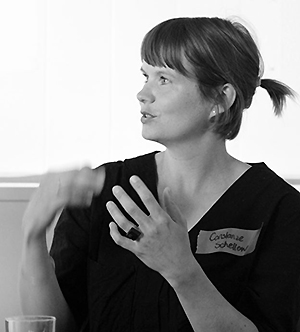 MaRking Difference: On the Productivity of Concepts of Negation, Negativity, and Absence in Contemporary Dance Discourse (working title)
MaRking Difference: On the Productivity of Concepts of Negation, Negativity, and Absence in Contemporary Dance Discourse (working title)
In Dance and Theater Studies, conceptions of “movement” or “presence” on the stage are, with increasing frequency, undergoing reformulation via negative concepts such as “absence” or “stasis”. Focusing on recent writings in Dance Studies, this project investigates the range, related discourses, and effectiveness of these terminologies.
Influential publications have taken distance from presence as the key category for a determination of the specific performativity of dance. Instead, concepts of absence and negativity are used, by means of the analysis of pieces by Jérôme Bel, Xavier Le Roy and Meg Stuart, among others, in order to formulate a redefinition of an “ontology” of choreography which is accompanied by theoretical gestures of dissociation from positions in Theatre Studies, Culture Studies and Performance Studies. The project investigates the extent to which such concepts in Dance Studies and in analyzed excerpts of choreographic practice are characterized by a double interaction with concepts of “absence” and “negativity” in philosophy. This perspectivation enables a consideration of both fields, Dance Studies and philosophy, in relation to one another and simultaneously allows the spectrum of concepts ranging from absence to negativity to be understood as a discourse that evolves between them. Read more
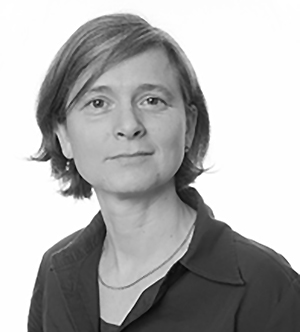 The ethics of Yahya ibn Adi. An ethical debate between Jewish, Muslim and Christian thinkers in Baghdad of the early middle ages? (working title)
The ethics of Yahya ibn Adi. An ethical debate between Jewish, Muslim and Christian thinkers in Baghdad of the early middle ages? (working title)
Baghdad of the 10th century – a melting pot of cultures, religions and scientific scholarship, as well as the centre of governance of the Abbasid Caliphate and the Buyid rulers– seem to offer the intellectual platform for some influential philosophers to conceive elementary writings of moral philosophy. The contemporary thought in those days was reflected in a brisk culture of polemics between and within different religious groups. The reception of Hellenistic philosophy among others made up the methodical as well as the topical setting. Thereto pertaining the gnomological collections (moral quotes and anecdotes of the ancients), moral tractates attributed to Galen and Aristotle’s Nicomachean Ethics, which where translated from Greek and Syriac into Arabic as early as the 9th and the beginning of the 10th century. At least since the dissemination of these writings among the dependants of the Arabic speaking community, one can assume a debate in moral philosophy, which reached far beyond the various circles of scholarship. Read more
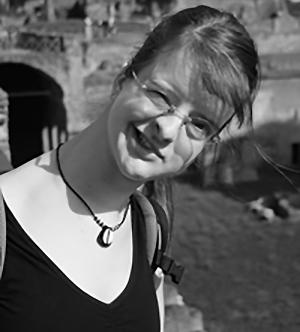 Neither hypnosis, nor the study of syphilis, nor the debate on Friedrich’s III. death of throat cancer – Arthur Schnitzler has followed the medical discourse of his time and participated in its shaping. His Medizinische Schriften documents this participation in a multitude of different reviews, reports, and the only independent study Über funktionelle Aphonie und deren Behandlung durch Hypnose und Suggestion. In this text materia Schnitzler’s comments on his contemporaries’ medical works and the Viennese School present a well-grounded analysis of the situation of the medical profession during his time. These texts demonstrate different kinds of knowledge at the same time: Knowledge about the treatment of hysteria, the aetiology of syphilis, the arguments of hereditary theories and other issues. The extensive opus of Schnitzler’s literary texts stands next to this medical discourse, coeval varies and expounds its problems and therefore transforms parts of this medical knowledge. Read more
Neither hypnosis, nor the study of syphilis, nor the debate on Friedrich’s III. death of throat cancer – Arthur Schnitzler has followed the medical discourse of his time and participated in its shaping. His Medizinische Schriften documents this participation in a multitude of different reviews, reports, and the only independent study Über funktionelle Aphonie und deren Behandlung durch Hypnose und Suggestion. In this text materia Schnitzler’s comments on his contemporaries’ medical works and the Viennese School present a well-grounded analysis of the situation of the medical profession during his time. These texts demonstrate different kinds of knowledge at the same time: Knowledge about the treatment of hysteria, the aetiology of syphilis, the arguments of hereditary theories and other issues. The extensive opus of Schnitzler’s literary texts stands next to this medical discourse, coeval varies and expounds its problems and therefore transforms parts of this medical knowledge. Read more
Companies with international ambitions are increasingly becoming global players. Many of them have decided to fight for their share of the international market, or even for market leadership through such activities as company acquisition or the establishment of joint ventures, as well as by engaging in various other types of cooperation with companies abroad. Such partnerships are now more rapidly attainable than ever before, thanks to modern media of communication and increasing mobility, among other things. Consequently, these global players have a constant need to recreate their corporate culture and identity. Read more
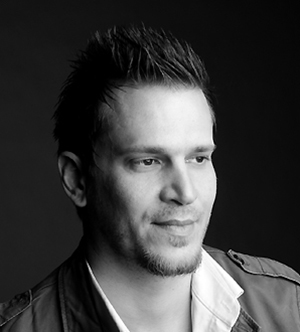 Due to the impacts of postmodernism, social and cultural anthropology has been dealing intensively with the possibilities and limits of representing “other” human beings and their meaningful worlds. So far, the discipline has discussed ways of improving its methods of representation without, however, fully raising questions about the quality and validity of the objects represented and the very idea, that they could be “represented”. Thus, despite attempts to purify classical anthropological categories, substantialized identities (“Humans”, “Others”, “Pygmies” etc.) along with various forms of binary oppositions (us – them, culture – nature, human – animal, fact – representation) have been rehearsed. The project aims to dissect and challenge the metaphysical outputs of the “anthropological machine” (Giorgio Agamben).
Due to the impacts of postmodernism, social and cultural anthropology has been dealing intensively with the possibilities and limits of representing “other” human beings and their meaningful worlds. So far, the discipline has discussed ways of improving its methods of representation without, however, fully raising questions about the quality and validity of the objects represented and the very idea, that they could be “represented”. Thus, despite attempts to purify classical anthropological categories, substantialized identities (“Humans”, “Others”, “Pygmies” etc.) along with various forms of binary oppositions (us – them, culture – nature, human – animal, fact – representation) have been rehearsed. The project aims to dissect and challenge the metaphysical outputs of the “anthropological machine” (Giorgio Agamben).
Read more
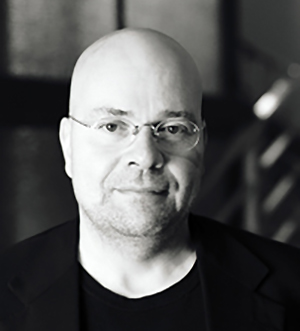 In media studies it is often argued that the emergence of new media inevitably leads to anxieties among devotees of old media who suspect that these media become irrelevant: photography menaces painting, film executes photography, tv menaces film, and the Internet finishes everything else. The printed book is no exception from this logic. Long before the invention of ebooks and Open access, various prophets predicted the decline of the Gutenberg Galaxis. Even without subscribing to such apocalyptic visions, we can not overlook the fact that the humanistic book has come under pressure. Being the unquestioned and primordial scientific medium in the 20th century, an assembly of habituations and practices has shifted within a few years. That implies institutions of advanced studies, publishers, research communities and the scholars themselves. The question, thus, is: Which role will the printed book play within and without the humanities?
In media studies it is often argued that the emergence of new media inevitably leads to anxieties among devotees of old media who suspect that these media become irrelevant: photography menaces painting, film executes photography, tv menaces film, and the Internet finishes everything else. The printed book is no exception from this logic. Long before the invention of ebooks and Open access, various prophets predicted the decline of the Gutenberg Galaxis. Even without subscribing to such apocalyptic visions, we can not overlook the fact that the humanistic book has come under pressure. Being the unquestioned and primordial scientific medium in the 20th century, an assembly of habituations and practices has shifted within a few years. That implies institutions of advanced studies, publishers, research communities and the scholars themselves. The question, thus, is: Which role will the printed book play within and without the humanities?
Read more
Dear participants
We are very much looking forward to meeting you at Schloss Münchenwiler in January! Meanwhile, we offer you blog space to get to know each other in advance. This blog is meant to connect participants before and after the Winter School.
Here you can share information about your research projects as they progress; you can also share information about events that might be of interest to your peers; or, you can raise questions that are currently on your mind. In short, this blog offers a space where TransFormations can be discussed as well as performed.
In that sense: Join us and transform!
Your Winter School Project Team
Prof. Dr. Virginia Richter
Dr. Manuela Rossini
Dr. des. Sabina von Fischer
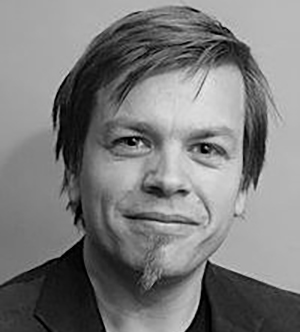 Societies and cultures depend on shared knowledge – for instance about different social roles and positions, the norms and behaviour associated with these roles, rights and duties, shared values or a common cultural heritage to name but a few examples. In order to be shared, knowledge on the one hand needs to circulate within a specific group. And on the other hand, of course, knowledge (or bits and pieces thereof) is also constantly exchanged with other such groups – purposefully or not. Hence, knowledge – willingly or not – is constantly on the move.
Societies and cultures depend on shared knowledge – for instance about different social roles and positions, the norms and behaviour associated with these roles, rights and duties, shared values or a common cultural heritage to name but a few examples. In order to be shared, knowledge on the one hand needs to circulate within a specific group. And on the other hand, of course, knowledge (or bits and pieces thereof) is also constantly exchanged with other such groups – purposefully or not. Hence, knowledge – willingly or not – is constantly on the move.
Read more
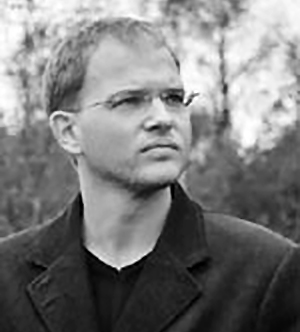 “A time must come when there will be a science of the future, just like there is a science of the past – and when by virtue of this science the noblest humans calculate for the future as well as for themselves,” writes German philosopher and theologist Johann Gottfried Herder in his 1797 essay On Knowing and Not-Knowing the Future.
“A time must come when there will be a science of the future, just like there is a science of the past – and when by virtue of this science the noblest humans calculate for the future as well as for themselves,” writes German philosopher and theologist Johann Gottfried Herder in his 1797 essay On Knowing and Not-Knowing the Future.
In my talk, I will discuss Herder’s and other concepts of futurity that were advanced around the year 1800. Thereby, an epistemological TransFormation par excellence will be observed – the one to bridge knowledge about the future with a general futurization of knowledge.
Read more








